Programs That Allow Couples to Stay Together
When couples face addiction together, one of their deepest fears is being separated during treatment. The thought of navigating recovery alone, away from the person who understands their struggle most intimately, can feel overwhelming and counterproductive. Fortunately, specialized programs that allow couples to stay together offer hope for partners who want to heal side by side, maintaining their connection while addressing their individual and shared recovery needs.
Understanding that addiction affects relationships as much as individuals, progressive treatment centers now offer comprehensive joint addiction treatment programs that recognize the support and accountability couples provide each other as crucial elements in achieving lasting sobriety.
Understanding Shared Accommodations Couples Rehab Options
What Makes Joint Recovery Different from Individual Treatment?
Shared accommodations couples rehab represents a fundamental shift from traditional addiction treatment approaches that typically separate partners during their most vulnerable healing period. These programs operate on the principle that addiction is often a shared experience within relationships, requiring coordinated treatment that addresses both individual recovery needs and relationship dynamics simultaneously.
Unlike conventional treatment programs that isolate individuals from their support systems, joint addiction treatment programs integrate couples into a unified healing process. This approach acknowledges that when both partners struggle with substance use, their recovery journeys are inherently interconnected. By allowing couples to stay together, these programs harness the natural support system that exists within committed relationships while providing professional guidance to ensure healthy recovery patterns.
The therapeutic framework incorporates evidence-based practices specifically designed for couples, including Behavioral Couples Therapy (BCT), which has demonstrated superior outcomes compared to individual treatment approaches. Research consistently shows that couples who undergo treatment together report greater reductions in substance use and improved relationship satisfaction compared to those who receive separate individual therapy.
Different Models of Staying Together During Treatment
Programs that allow couples to stay together operate under various accommodation models, each designed to balance intimacy with therapeutic necessity. Some residential couples treatment programs provide private rooms where partners can share living space throughout their treatment stay, while others offer modified arrangements that include shared common areas with separate sleeping quarters during specific phases of recovery.
The most comprehensive programs feature purpose-built facilities with couples-specific accommodations that include private suites, shared bathroom facilities, and designated areas for couple-focused therapeutic activities. These settings are designed to promote healing while maintaining the comfort and security that couples derive from each other’s presence during the challenging early stages of recovery.
Can Couples Stay in the Same Room During Inpatient Rehab?
Accommodation Policies and Guidelines
The question “can couples stay in the same room during inpatient rehab” is among the most frequently asked by partners considering treatment together. The answer varies significantly depending on the specific treatment center and their therapeutic philosophy regarding shared accommodations. While traditional rehab facilities typically house clients separately to encourage individual focus, specialized couples rehab programs with shared living quarters specifically accommodate couples who want to maintain physical proximity during treatment.
Facilities that offer shared room arrangements typically require couples to meet specific criteria, including demonstrated relationship stability, mutual commitment to recovery, and absence of domestic violence or abusive patterns. Treatment centers carefully assess each couple’s dynamics to ensure that staying together will support rather than hinder their recovery process.
Many addiction treatment centers that allow couples together have developed sophisticated policies that balance togetherness with therapeutic boundaries. These may include designated “individual time” periods where partners engage in separate activities, structured couple time with therapeutic oversight, and gradual increases in shared responsibility as recovery progresses.
Privacy and Therapeutic Boundaries in Shared Settings
Couples rehab programs with shared living quarters maintain careful attention to privacy and therapeutic boundaries that support individual growth while preserving relationship connection. These programs typically feature private bedroom spaces for couples while providing separate areas for individual therapy sessions and personal reflection time.
The most effective programs establish clear guidelines about appropriate behavior in shared accommodations, including respect for other couples in treatment, maintenance of therapeutic boundaries during couples’ time, and protocols for managing conflict or disagreement in shared spaces.
Types of Joint Addiction Treatment Programs Available
Residential Programs with Shared Accommodations
Residential couples treatment programs offer the most intensive level of shared accommodation, typically lasting 30-90 days and providing 24-hour clinical support within a couples-focused environment. These programs feature specialized facilities designed specifically for couples, including private suites, shared recreational areas, and therapeutic spaces that accommodate both individual and joint treatment activities.
Behavioral couples therapy residential programs integrate evidence-based BCT methodologies with residential treatment structures, creating comprehensive programming that addresses addiction while strengthening relationship bonds. These programs typically include daily individual therapy sessions, regular couples therapy meetings, group therapy with other couples, educational workshops on addiction and relationship skills, and supervised recreational activities designed to promote healthy shared experiences.
Intensive Outpatient Programs for Couples
Joint recovery programs for married couples who cannot commit to residential treatment often find intensive outpatient programs (IOPs) that accommodate couples living together at home while participating in structured treatment activities. These programs typically require 9-20 hours of weekly programming while allowing couples to maintain their living arrangements and, in many cases, work responsibilities.
Outpatient behavioral couples therapy programs provide flexible scheduling that accommodates couples’ shared lifestyle while delivering evidence-based treatment methodologies. These programs often include evening and weekend sessions designed to fit around work schedules, making recovery accessible for couples who cannot take extended time away from their responsibilities.
Behavioral Couples Therapy in Residential Settings
Evidence-Based Approaches to Joint Recovery
Behavioral couples therapy represents the gold standard for evidence-based couples addiction treatment, with numerous clinical studies demonstrating its effectiveness in promoting both individual sobriety and relationship improvement. In residential settings, BCT is integrated into daily programming through structured therapy sessions, behavioral exercises, and practical applications that help couples develop new patterns of interaction that support recovery.
The core principles of BCT focus on increasing positive behaviors between partners, improving communication skills, and creating shared accountability systems that reinforce sobriety goals. In residential settings, these principles are applied through daily “recovery contracts” where couples publicly commit to supporting each other’s sobriety, regular appreciation exercises that rebuild positive emotional connections, and communication skills training that helps partners navigate recovery challenges together.
Couples recovery together through BCT methodologies typically includes learning to identify and change enabling behaviors, developing healthy conflict resolution skills, and creating new relationship traditions that support sobriety rather than substance use.
Integration with Individual Treatment Approaches
Effective behavioral couples therapy residential programs carefully balance joint treatment with individual therapeutic work, recognizing that personal healing is essential for relationship recovery. Individual therapy sessions address personal trauma, mental health concerns, and individual triggers that may affect both personal recovery and relationship dynamics.
The integration typically includes morning individual therapy sessions followed by afternoon couples work, allowing partners to process personal insights privately before sharing appropriate information with their partner.

Benefits and Challenges of Couples Recovery Together
Advantages of Staying Together During Treatment
Couples recovery together offers numerous advantages that can significantly enhance both individual and relationship outcomes. The primary benefit lies in maintaining the natural support system that committed partners provide each other during the vulnerable early stages of recovery. Partners who stay together can offer immediate encouragement during difficult moments, share accountability for maintaining sobriety goals, and provide emotional support during the challenging process of behavioral change.
Research demonstrates that couples who undergo treatment together have higher completion rates than those who attempt recovery separately. The mutual motivation that comes from shared goals and mutual accountability helps partners persist through difficult phases of treatment that might otherwise lead to premature departure from programs.
Potential Challenges and How Programs Address Them
While couples recovery together offers significant benefits, specialized programs must address potential challenges that can arise when partners with addiction issues stay together during treatment. One primary concern involves the risk of enabling behaviors continuing even within treatment settings, where partners might inadvertently support each other’s resistance to certain therapeutic interventions.
Programs address these challenges through carefully structured supervision, individual therapy sessions that help partners recognize enabling patterns, and group therapy with other couples that provides perspective on healthy versus unhealthy support behaviors.
How to Find Addiction Treatment Centers That Allow Couples Together
Research Strategies and Questions to Ask
Finding addiction treatment centers that allow couples together requires targeted research and specific questions that address accommodation policies, treatment methodologies, and program structures. When contacting potential programs, ask specific questions about room sharing policies, including whether private rooms are available for couples, what the application process involves for shared accommodations, and how treatment schedules are coordinated for couples.
Additionally, inquire about the program’s experience with couples treatment, including how long they have offered shared accommodations, what percentage of their clients are couples, and what their success rates are for couples who complete treatment together.
Evaluation Criteria for Couples Programs
When evaluating potential programs, consider factors beyond accommodation policies to ensure comprehensive care that supports both individual and relationship recovery. Look for programs that offer dedicated couples therapists with specialized training in addiction and relationship dynamics, individual therapy options for each partner, and evidence-based treatment methodologies with documented success rates.
Accreditation from organizations like the Joint Commission or CARF indicates that programs meet established standards for safety and clinical effectiveness.
Residential Couples Treatment: What to Expect Daily
Structured Programming and Daily Schedules
Daily life in residential couples treatment combines individual healing work with relationship-focused activities in carefully structured programming that maximizes therapeutic benefit while maintaining couple connection. Typical days begin with individual meditation or reflection time, followed by separate individual therapy sessions that allow partners to process personal insights privately.
Mornings often include educational workshops on topics like addiction science, relationship communication skills, or trauma recovery, attended by both partners together. Afternoons typically feature couples therapy sessions where partners work with specialized therapists on relationship dynamics, communication patterns, and joint recovery planning.
Balancing Individual and Joint Treatment Activities
Effective residential couples treatment maintains careful balance between individual and joint activities to ensure that personal recovery needs are met while relationship healing progresses. Individual components typically include private therapy sessions, personal goal-setting meetings, and individual recreational time that allows for personal reflection and processing.
Joint activities include couples therapy sessions, shared meals with therapeutic discussion components, recreational activities designed to promote healthy interaction, and educational workshops that provide tools for maintaining recovery as a couple.
Making the Decision: Is Joint Recovery Right for Your Relationship?
Assessment Factors for Couples Considering Joint Treatment
Determining whether joint recovery is appropriate for your relationship requires honest assessment of several key factors that influence the likelihood of success in shared treatment settings. First, evaluate the stability and health of your relationship foundation—couples with strong communication skills, mutual respect, and shared commitment to recovery tend to benefit most from joint treatment approaches.
Consider whether both partners are equally motivated for recovery, as significant differences in readiness for change can create challenges in shared treatment settings. Programs typically require both partners to demonstrate genuine commitment to sobriety and willingness to engage fully in therapeutic activities.
Frequently Asked Questions
Do all rehab centers allow couples to stay in the same room? No, not all rehab centers allow couples to share rooms. Traditional treatment facilities often maintain separate accommodation policies to encourage individual focus. However, specialized couples treatment programs specifically designed for joint recovery do offer shared living arrangements with appropriate therapeutic oversight.
How much does couples rehab with shared accommodations cost? Costs vary significantly based on program type, location, and amenities, typically ranging from $30,000-$80,000 for residential treatment. Many insurance plans cover couples treatment when medically necessary, and some programs offer payment plans or sliding scale fees.
Can unmarried couples access the same programs as married couples? Most programs that accept couples base admission on relationship stability and commitment rather than legal marriage status. Long-term committed partners, engaged couples, and domestic partners typically qualify for the same programs as married couples.
What happens if one partner wants to leave treatment early? Programs have specific protocols for situations where one partner wants to discontinue treatment. Options may include transitioning the remaining partner to individual treatment, arranging separate accommodations within the same facility, or developing modified treatment plans.
Are there programs specifically for LGBTQ+ couples? Yes, many couples treatment programs specifically welcome and affirm LGBTQ+ couples, with staff trained in culturally competent care. Some programs specialize exclusively in serving LGBTQ+ individuals and couples.
How do programs handle conflicts between couples during treatment? Conflict resolution is an integral part of couples treatment, with trained staff available to mediate disagreements and teach healthy communication skills. Programs typically have protocols for managing conflicts that may arise.
Can couples with children bring them to residential treatment? Most residential couples programs do not accommodate children on-site, but many help arrange appropriate childcare during treatment. Some programs offer family therapy sessions that include children.
What is the success rate for couples who complete treatment together? Research indicates that couples who complete treatment together have higher long-term sobriety rates compared to individual treatment, with studies showing 60-70% maintaining sobriety at one-year follow-up.
How long do couples typically stay in residential treatment together? Treatment duration varies based on individual needs and addiction severity, typically ranging from 30-90 days for residential programs. Some couples may require longer treatment, while others may transition to outpatient programs.
Do couples attend all therapy sessions together? No, effective couples programs balance joint sessions with individual therapy time. Partners typically participate in individual therapy, couples therapy, and group therapy in various combinations designed to address both personal recovery needs and relationship healing.
Conclusion
Programs that allow couples to stay together represent a revolutionary approach to addiction treatment that honors the profound connection between partners while providing the clinical structure necessary for successful recovery. These specialized joint addiction treatment programs recognize that for many couples, healing together can be more powerful than healing apart, creating opportunities for shared growth, mutual accountability, and relationship strengthening that supports long-term sobriety.
The decision to pursue recovery together requires careful consideration of your relationship dynamics, individual recovery needs, and commitment to the challenging work of healing both addiction and relationship patterns. However, for couples who are appropriate candidates, the benefits of shared accommodations couples rehab can be transformational, creating stronger partnerships that serve as foundations for lifelong recovery.
At Couples Rehabs, we understand the unique challenges and opportunities that couples face when seeking recovery together. While our programs focus on choosing the right rehab program for your relationship, we recognize that for many couples, staying together during treatment is an essential component of their healing journey.
Your relationship can be one of your greatest assets in recovery, providing motivation, accountability, and support that enhances your individual healing while strengthening your partnership. The key is finding programs that understand how to harness this natural support system while providing the clinical expertise necessary for addressing addiction effectively.
Ready to explore treatment options that allow you and your partner to heal together? Contact Couples Rehabs to speak with our specialists about couples treatment programs and shared accommodation options. Discover how staying together during recovery can strengthen both your sobriety and your relationship – your journey to joint healing starts with a single phone call.
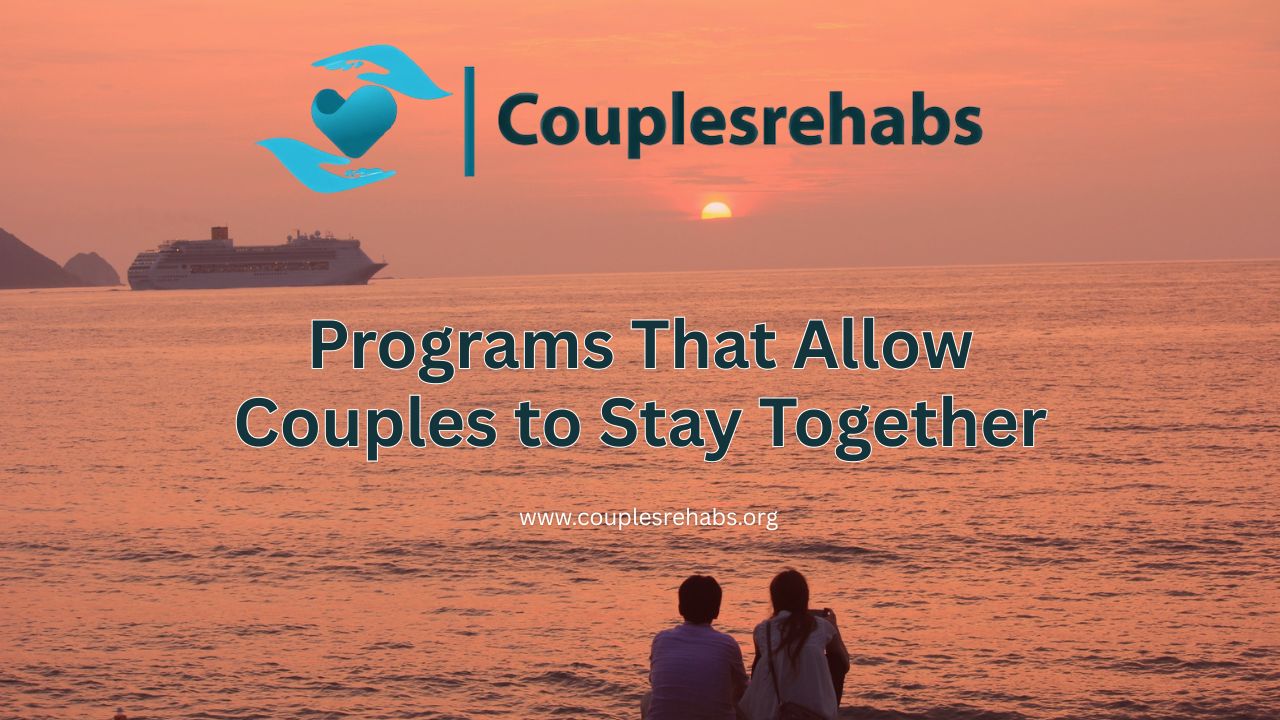
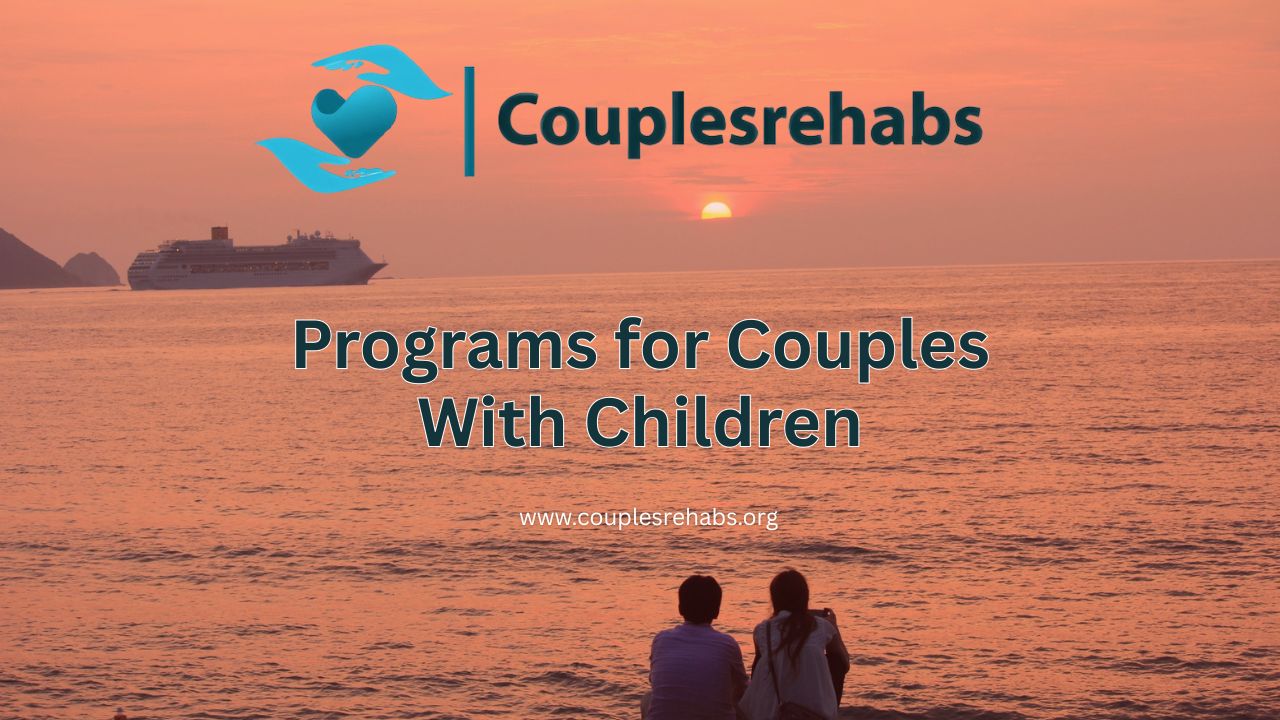
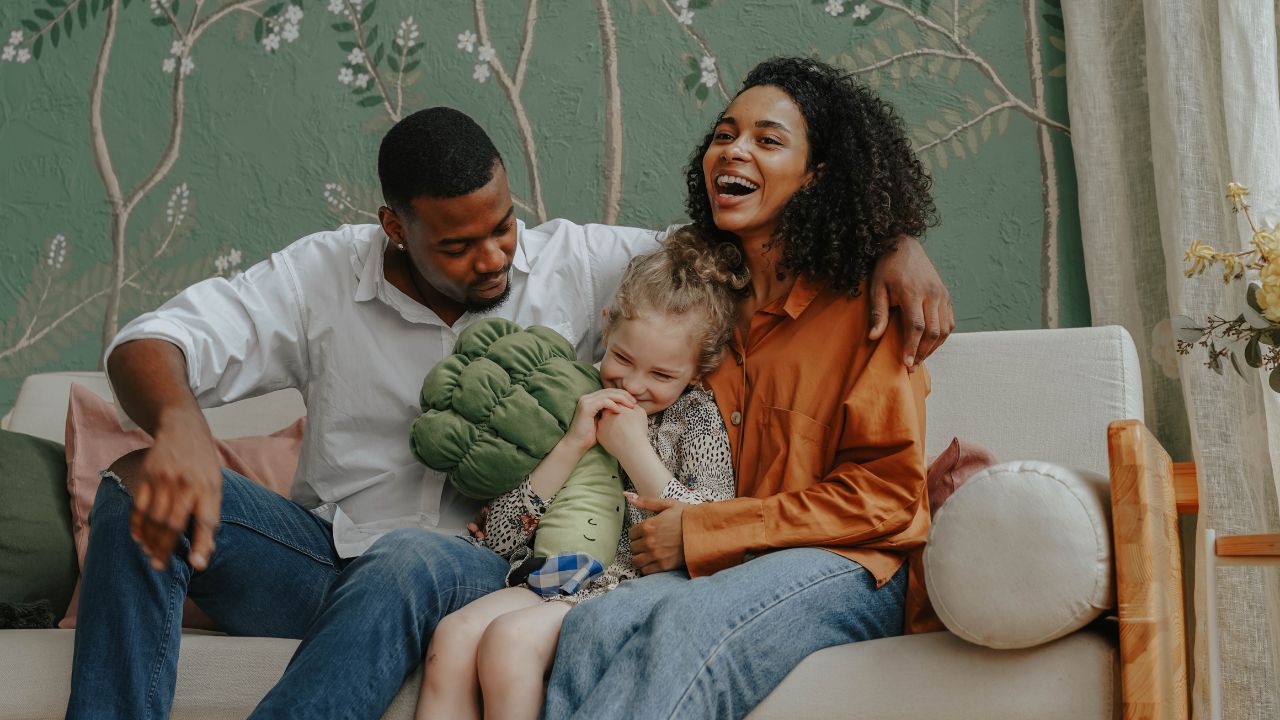


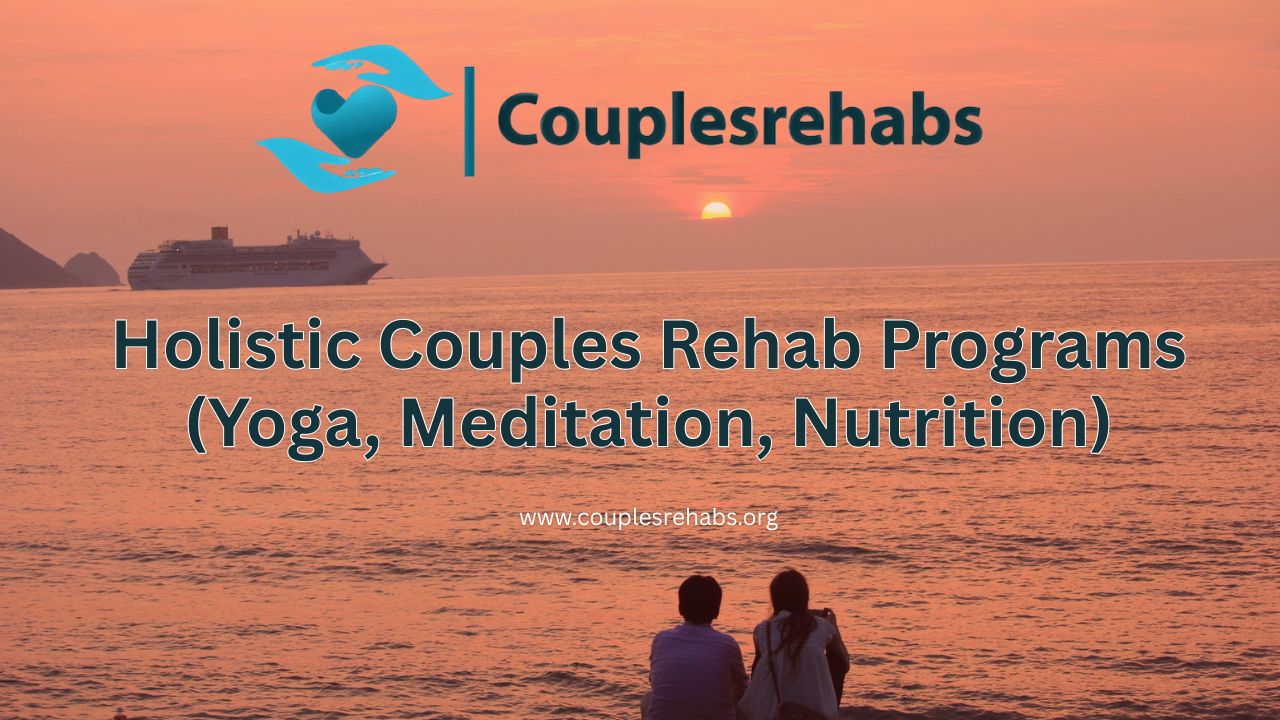

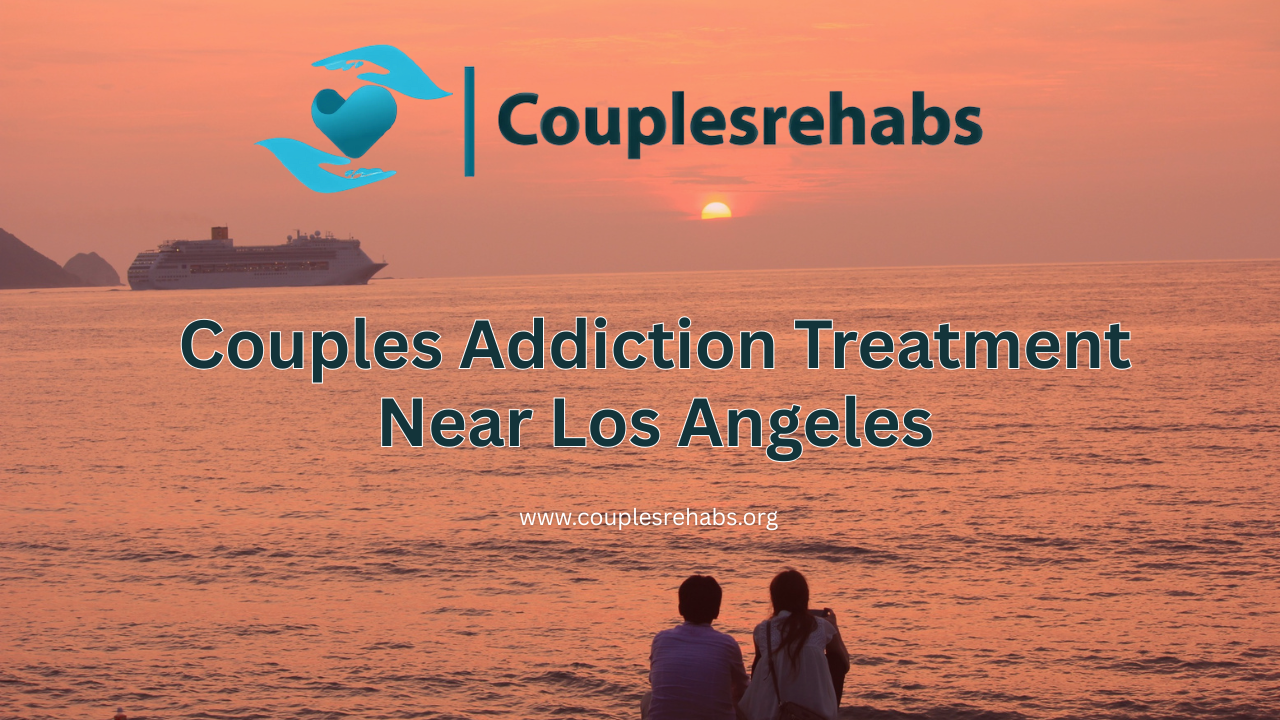
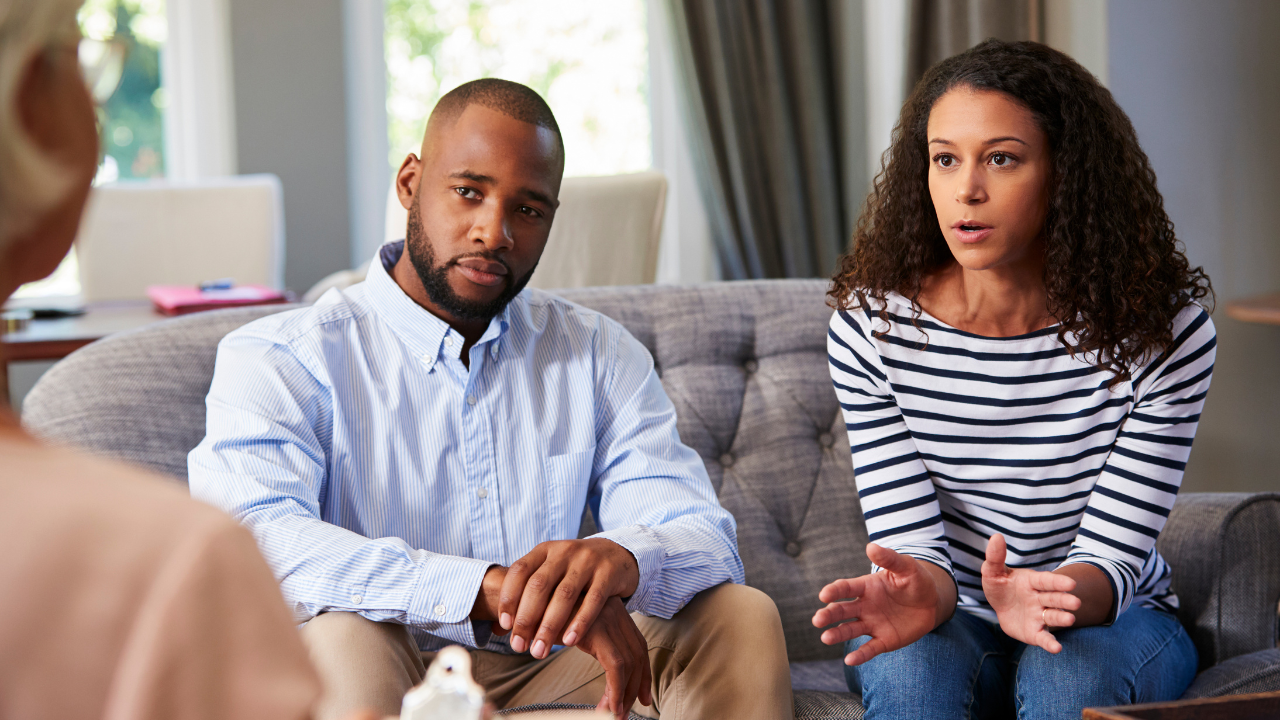
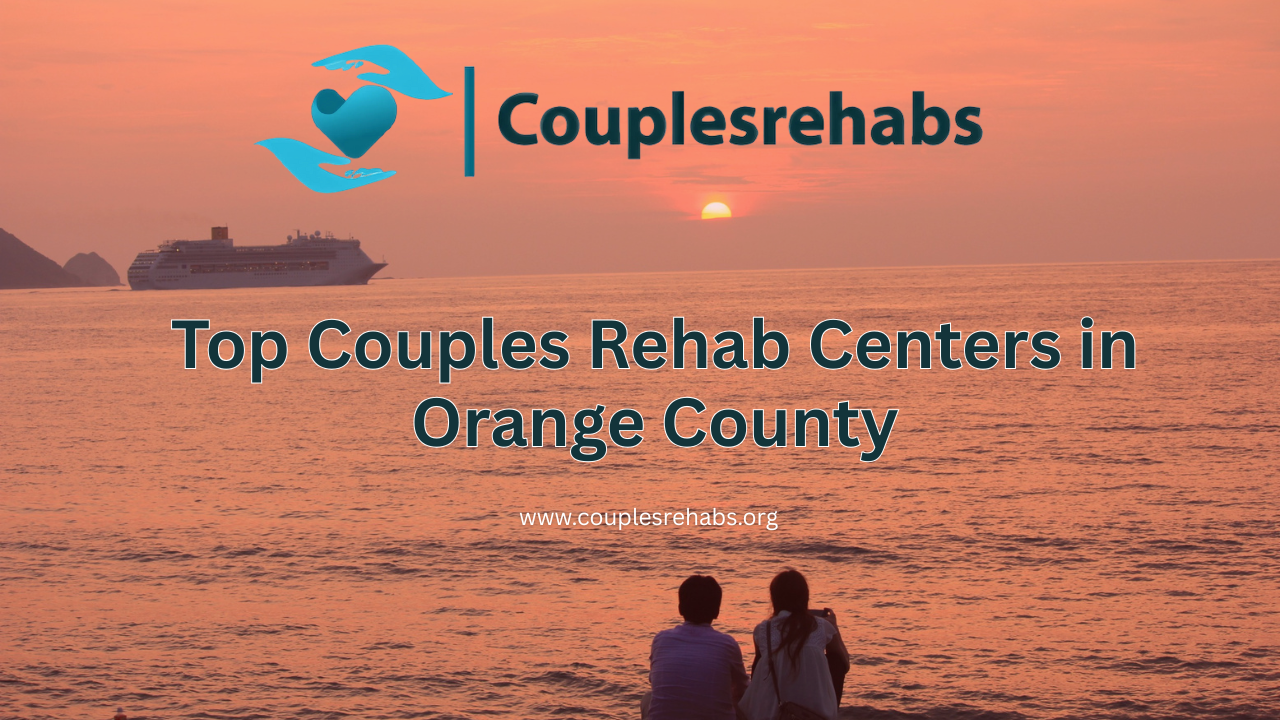



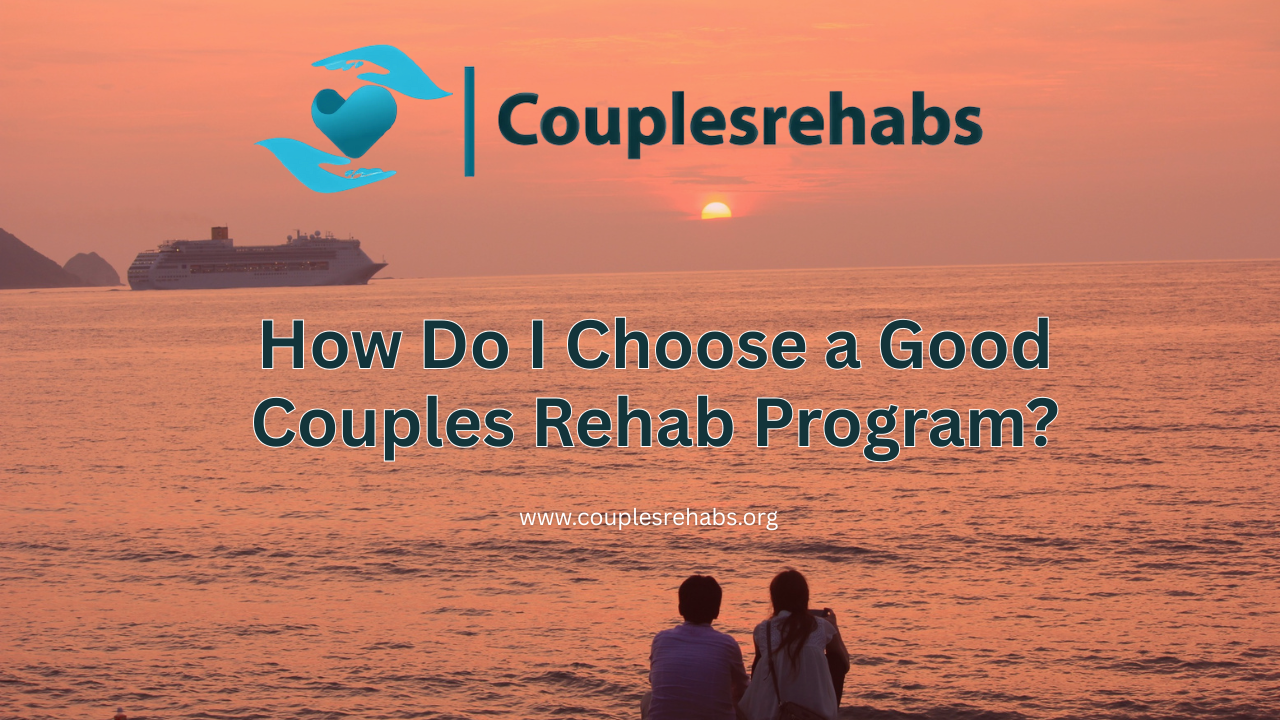


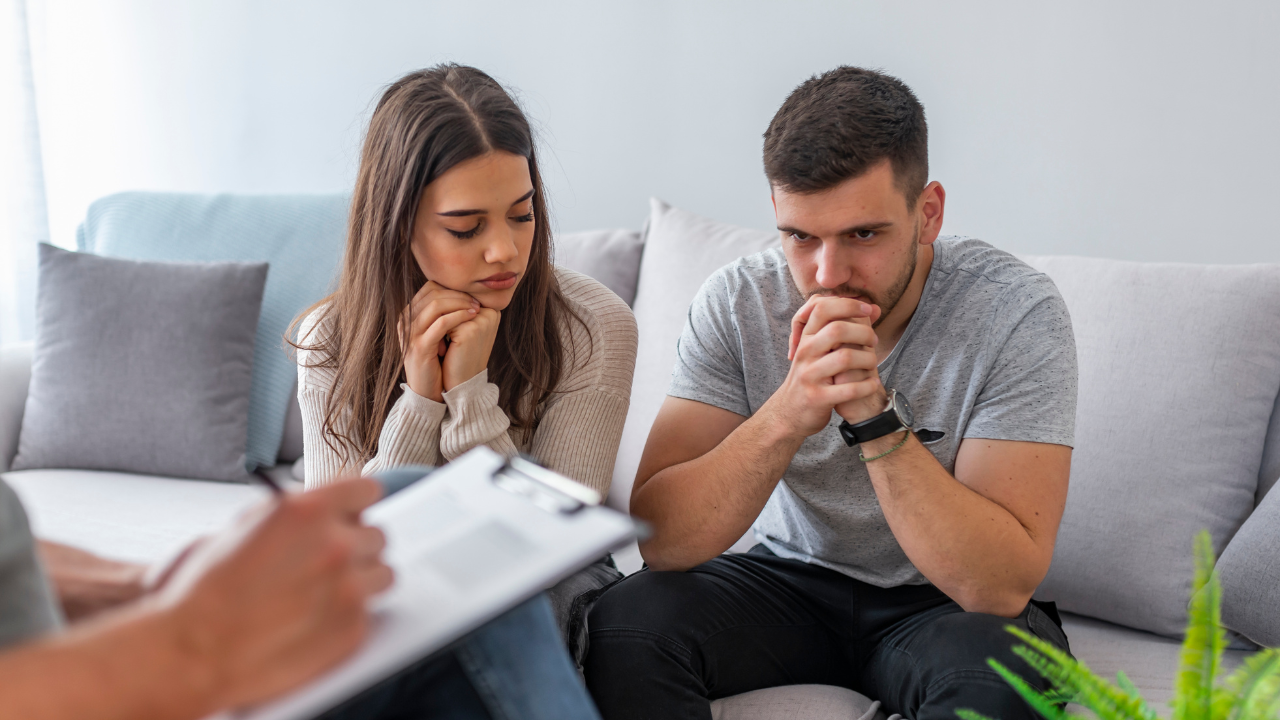
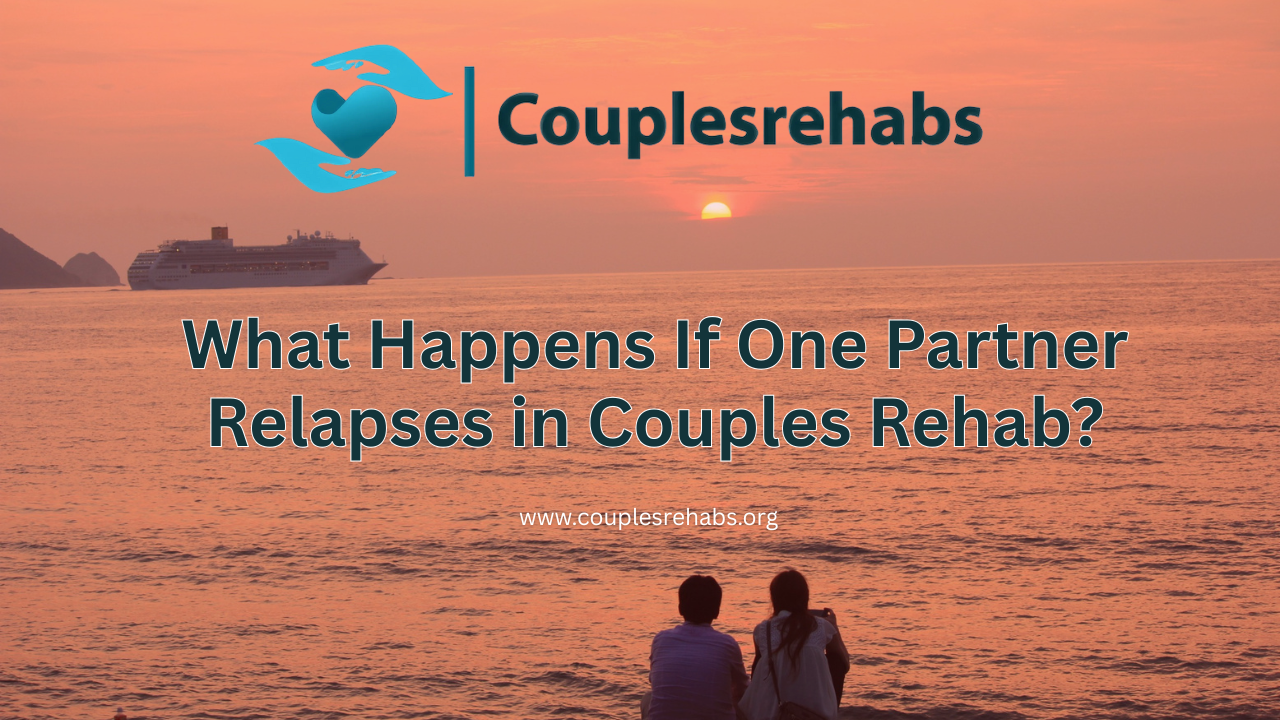

Recent Comments